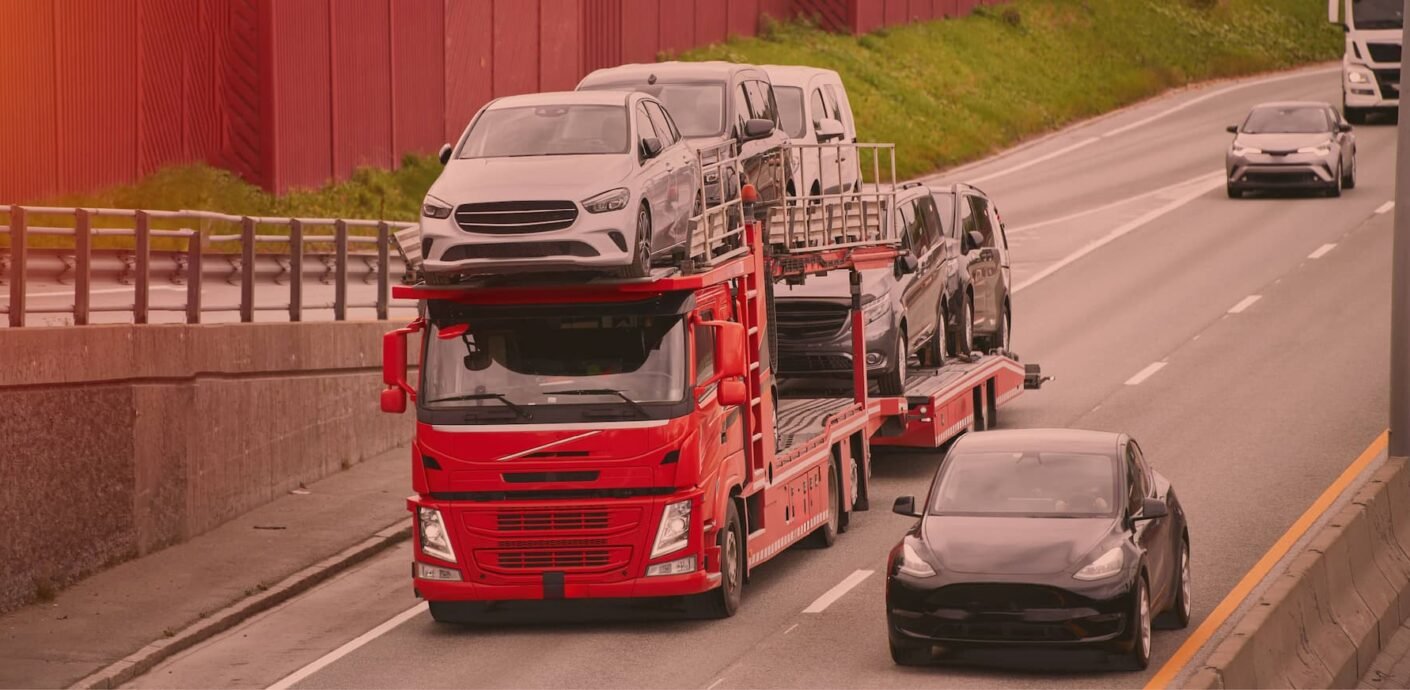The trucking industry is the backbone of the American economy, ensuring that goods are transported across the country efficiently. However, with this responsibility comes the critical need to adhere to regulations that guarantee safety, efficiency, and accountability. The Department of Transportation (DOT) and the Federal Motor Carrier Safety Administration (FMCSA) have established a comprehensive set of rules and regulations that every trucker and trucking company must follow. This DOT compliance guide will walk you through the key aspects of DOT regulations for truckers, offering insights into how you can maintain compliance, ensure safety, and avoid costly penalties.
Understanding DOT Regulations for Truckers
The Importance of DOT Regulations
DOT regulations for truckers are designed to ensure the safety of drivers, other road users, and the goods being transported. These regulations cover a wide range of areas, including vehicle maintenance, driver qualifications, hours of service, and safety protocols. Compliance with these regulations is not only a legal requirement but also a crucial factor in maintaining the reputation and efficiency of trucking operations.
The DOT and FMCSA have established these regulations to reduce accidents, prevent fatigue-related incidents, and promote safe driving practices. Non-compliance can lead to severe penalties, including fines, suspension of licenses, and even the shutdown of operations. Therefore, understanding and adhering to these regulations is essential for every trucker and trucking company.
Key Areas of DOT Compliance
- Driver Qualifications: Ensuring that all drivers meet the necessary qualifications, including holding a valid commercial driver’s license (CDL), passing medical examinations, and completing required training.
- Hours of Service (HOS): Regulating the number of hours a driver can operate a vehicle to prevent fatigue and ensure safety on the roads.
- Vehicle Maintenance: Regular inspections and maintenance to ensure that vehicles are in safe operating condition.
- Safety Protocols: Implementing safety measures to protect drivers, cargo, and other road users, including the use of safety equipment and adherence to traffic laws.
- Drug and Alcohol Testing: Conducting regular drug and alcohol testing to ensure that drivers are sober and fit to operate vehicles.
A Comprehensive DOT Compliance Guide
- Driver Qualifications and Requirements
One of the primary aspects of DOT regulations for truckers is ensuring that all drivers meet specific qualifications and requirements. The FMCSA regulations mandate that drivers hold a valid commercial driver’s license (CDL) appropriate for the type of vehicle they operate. Depending on the vehicle type, endorsements such as Hazmat (H), Double/Triple Trailers (T), or Tank Vehicles (N) may be required.
Drivers must also undergo a DOT physical examination conducted by a certified medical examiner. This examination assesses the driver’s physical and mental fitness to operate a commercial vehicle safely. The medical certificate is valid for up to 24 months, and drivers must renew it before expiration.
In addition to holding a CDL and passing a medical examination, drivers must maintain a clean driving record. Any violations, accidents, or traffic offenses can impact a driver’s ability to operate a commercial vehicle legally. It is crucial for trucking companies to regularly review driver records to ensure compliance with DOT safety standards.
Furthermore, drivers must complete specific training programs that cover topics such as defensive driving, cargo handling, and emergency procedures. This training is essential for developing the skills and knowledge necessary to navigate the challenges of the trucking industry safely.
- Hours of Service (HOS) Regulations
Hours of Service (HOS) regulations are a critical component of DOT safety compliance. These regulations are designed to prevent driver fatigue by limiting the number of hours a driver can be on duty and behind the wheel. Adhering to HOS regulations is essential for ensuring driver safety and reducing the risk of accidents caused by fatigue.
The FMCSA regulations specify the following HOS rules for property-carrying drivers:
- 11-Hour Driving Limit: Drivers may drive a maximum of 11 hours after 10 consecutive hours off duty.
- 14-Hour Limit: Drivers cannot drive beyond the 14th consecutive hour after coming on duty, following 10 consecutive hours off duty.
- 30-Minute Break Requirement: Drivers must take a 30-minute break when they have driven for 8 cumulative hours without at least a 30-minute interruption.
- 60/70-Hour Limit: Drivers cannot drive after 60/70 hours on duty in 7/8 consecutive days. A driver may restart a 7/8 consecutive day period after taking 34 or more consecutive hours off duty.
To ensure compliance with HOS regulations, trucking companies must implement electronic logging devices (ELDs) that automatically record driving hours, rest periods, and duty status. ELDs provide an accurate record of a driver’s activity, simplifying compliance and reducing the risk of violations.
- Vehicle Maintenance and Inspection
Proper vehicle maintenance is a cornerstone of DOT compliance. Ensuring that trucks are in safe operating condition is not only a legal requirement but also a vital aspect of preventing accidents and ensuring the safety of drivers and other road users.
The FMCSA regulations require that all commercial vehicles undergo regular inspections and maintenance. This includes pre-trip and post-trip inspections conducted by drivers to identify any potential issues. Drivers must complete a Driver Vehicle Inspection Report (DVIR) to document the condition of the vehicle and any necessary repairs.
Regular maintenance checks should cover critical components such as brakes, tires, lights, steering, suspension, and exhaust systems. Any defects or issues identified during inspections must be addressed promptly to prevent breakdowns or accidents.
Trucking companies should establish a preventive maintenance program that includes scheduled servicing and repairs. This program ensures that all vehicles remain in optimal condition and reduces the risk of unexpected mechanical failures.
Maintaining accurate records of all inspections, repairs, and maintenance activities is essential for demonstrating compliance with DOT regulations. These records should be readily available for review during DOT inspections and audits.
- Safety Protocols and Equipment
Implementing safety protocols and using appropriate safety equipment are key components of DOT safety compliance. Trucking companies must ensure that all drivers adhere to safety protocols designed to protect themselves, their cargo, and other road users.
Drivers should receive training on safe driving practices, including maintaining a safe following distance, adhering to speed limits, and using turn signals. Defensive driving techniques should also be emphasized to help drivers anticipate and respond to potential hazards on the road.
In addition to safe driving practices, the use of safety equipment is essential for compliance with DOT regulations. This includes equipping vehicles with safety features such as seat belts, airbags, and antilock braking systems (ABS). Trucks should also be fitted with reflective tape or decals to improve visibility, especially at night or in adverse weather conditions.
Cargo securement is another critical aspect of DOT safety compliance. Properly securing cargo prevents shifting during transit, reducing the risk of accidents caused by unbalanced loads. Drivers should be trained in cargo securement techniques and use appropriate tie-downs, straps, and barriers to ensure that loads remain stable.
Trucking companies should also have a comprehensive safety program that includes regular safety meetings, training sessions, and evaluations. This program should promote a culture of safety and encourage drivers to prioritize safe practices in all aspects of their work.
- Drug and Alcohol Testing
Ensuring that drivers are sober and fit to operate vehicles is a fundamental aspect of DOT compliance. The FMCSA regulations require trucking companies to implement a drug and alcohol testing program to detect and deter substance abuse among drivers.
The drug and alcohol testing program must include pre-employment testing, random testing, post-accident testing, reasonable suspicion testing, and return-to-duty testing. All drivers must be informed of the company’s testing policy and the consequences of failing a drug or alcohol test.
Pre-employment testing is conducted before a driver begins employment with a trucking company. This test ensures that potential employees are free from drugs and alcohol and are suitable for operating commercial vehicles.
Random testing is conducted on an unannounced basis and targets a random selection of drivers. This testing is a powerful deterrent against substance abuse, as drivers are aware that they may be tested at any time.
Post-accident testing is required following certain types of accidents, such as those resulting in fatalities or significant damage. This testing determines whether drugs or alcohol were a contributing factor in the accident.
Reasonable suspicion testing is conducted when a trained supervisor or manager observes signs of drug or alcohol use. These signs may include erratic behavior, slurred speech, or the smell of alcohol.
Return-to-duty testing is conducted after a driver has completed a substance abuse program and is returning to work. This test ensures that the driver is free from drugs and alcohol and is fit to resume driving duties.
Maintaining accurate records of all drug and alcohol testing activities is essential for demonstrating compliance with DOT regulations. These records should be securely stored and readily available for review during DOT audits and inspections.
FMCSA Regulations: A Closer Look
The Role of FMCSA
The Federal Motor Carrier Safety Administration (FMCSA) is a division of the DOT responsible for regulating and overseeing the safety of commercial motor vehicles (CMVs). The FMCSA’s mission is to reduce crashes, injuries, and fatalities involving large trucks and buses. This agency establishes and enforces regulations that govern the operation of CMVs and the behavior of drivers.
FMCSA regulations cover a wide range of areas, including driver qualifications, vehicle maintenance, hours of service, and safety protocols. These regulations are designed to ensure the safety of drivers, passengers, and other road users. Compliance with FMCSA regulations is essential for trucking companies to maintain their operating authority and avoid penalties.
Key FMCSA Regulations
- Driver Qualification Files (DQF): Trucking companies must maintain a Driver Qualification File for each driver, containing information such as the driver’s application, CDL, medical certificate, and driving record. The DQF is essential for demonstrating that drivers meet all necessary qualifications.
- Vehicle Maintenance Records: Companies must maintain detailed records of all vehicle inspections, repairs, and maintenance activities. These records demonstrate compliance with FMCSA regulations and provide evidence of regular vehicle maintenance.
- Hours of Service (HOS) Compliance: As previously discussed, HOS regulations limit the number of hours a driver can operate a vehicle to prevent fatigue. Trucking companies must ensure that drivers adhere to these regulations and maintain accurate records of driving hours.
- Accident Register: Companies must maintain an accident register documenting all reportable accidents involving their vehicles. This register is used for monitoring safety performance and identifying areas for improvement.
- Safety Audit and Compliance Reviews: The FMCSA conducts safety audits and compliance reviews to assess a company’s adherence to regulations. These audits evaluate driver qualifications, vehicle maintenance, HOS compliance, and safety programs.
Maintaining FMCSA Compliance
Maintaining compliance with FMCSA regulations requires a proactive approach and a commitment to safety. Trucking companies should implement comprehensive compliance programs that include regular training, audits, and evaluations.
Training programs should cover key areas of FMCSA regulations, including driver qualifications, HOS compliance, vehicle maintenance, and safety protocols. Providing ongoing training ensures that drivers and staff remain informed about regulatory changes and best practices.
Regular audits and evaluations help identify potential compliance issues and areas for improvement. These audits should assess all aspects of operations, including driver qualifications, vehicle maintenance, and safety programs. Addressing issues promptly prevents violations and enhances overall safety.
Developing a culture of safety and compliance within the company is essential for maintaining FMCSA compliance. Encouraging open communication, promoting safe practices, and rewarding compliance efforts contribute to a positive work environment and a commitment to safety.
Preparing for DOT Inspections and Audits
The Importance of DOT Inspections
DOT inspections are conducted to ensure that trucking companies comply with all applicable regulations and maintain safe operations. These inspections assess various aspects of a company’s operations, including driver qualifications, vehicle maintenance, HOS compliance, and safety programs.
Preparing for DOT inspections is essential for avoiding violations and penalties. By maintaining accurate records and adhering to regulations, trucking companies can demonstrate compliance and ensure a successful inspection.
Steps to Prepare for DOT Inspections
- Maintain Accurate Records: Ensure that all records, including driver qualification files, vehicle maintenance records, and HOS logs, are accurate and up-to-date. These records should be readily available for review during inspections.
- Conduct Regular Audits: Perform regular audits of all aspects of operations to identify potential compliance issues. Addressing issues before inspections prevents violations and enhances safety.
- Train Drivers and Staff: Provide ongoing training on DOT regulations and best practices. Ensure that drivers and staff are informed about regulatory changes and are prepared for inspections.
- Implement a Compliance Program: Develop a comprehensive compliance program that includes regular training, audits, and evaluations. This program should promote a culture of safety and compliance within the company.
- Prepare for On-Site Inspections: Ensure that all vehicles are in safe operating condition and that drivers are prepared for on-site inspections. Conduct pre-trip and post-trip inspections to identify and address potential issues.
- Review Safety Programs: Assess the effectiveness of safety programs and implement improvements as needed. Encourage open communication and feedback from drivers and staff to identify areas for improvement.
Responding to DOT Inspections
When undergoing a DOT inspection, it is essential to cooperate fully with inspectors and provide all requested information. Be transparent about your operations and address any questions or concerns promptly.
If any violations are identified during the inspection, take immediate action to address the issues and implement corrective measures. Demonstrating a commitment to compliance and safety helps build a positive relationship with inspectors and enhances the reputation of your company.
Common DOT Compliance Challenges and Solutions
- Driver Fatigue
Challenge: Driver fatigue is a significant concern in the trucking industry and is a leading cause of accidents. Ensuring compliance with HOS regulations and preventing fatigue-related incidents can be challenging.
Solution: Implement ELDs to accurately track driving hours and rest periods. Encourage drivers to prioritize rest and take breaks as needed. Providing training on fatigue management and healthy sleep practices also helps reduce fatigue.
- Vehicle Maintenance
Challenge: Ensuring that all vehicles are in safe operating condition requires regular inspections and maintenance. Failure to maintain vehicles properly can result in violations and accidents.
Solution: Establish a preventive maintenance program that includes scheduled servicing and repairs. Conduct regular inspections and address any issues promptly. Maintain accurate records of all maintenance activities to demonstrate compliance.
- Record-Keeping
Challenge: Maintaining accurate and up-to-date records is essential for compliance but can be time-consuming and complex.
Solution: Implement a record-keeping system that organizes and stores all necessary records electronically. Use software tools to automate data entry and reduce the risk of errors. Regularly review records to ensure accuracy and compliance.
- Safety Protocols
Challenge: Ensuring that all drivers adhere to safety protocols and use appropriate safety equipment is essential for compliance and safety.
Solution: Provide regular training on safe driving practices and the use of safety equipment. Conduct safety meetings and evaluations to reinforce the importance of safety. Encourage a culture of safety and compliance within the company.
Conclusion
Staying compliant with DOT regulations is essential for the success and safety of trucking operations. By understanding and adhering to DOT regulations for truckers and FMCSA regulations, trucking companies can ensure that they meet all necessary requirements and avoid costly penalties.
This comprehensive DOT compliance guide has provided insights into key areas of compliance, including driver qualifications, HOS regulations, vehicle maintenance, safety protocols, and drug and alcohol testing. By implementing a proactive approach to compliance and fostering a culture of safety within the company, trucking companies can enhance their reputation, improve safety, and ensure the success of their operations.
As the trucking industry continues to evolve, staying informed about regulatory changes and best practices is crucial for maintaining compliance and achieving long-term success. By prioritizing safety and compliance, truckers and trucking companies can navigate the challenges of the industry with confidence and resilience.




